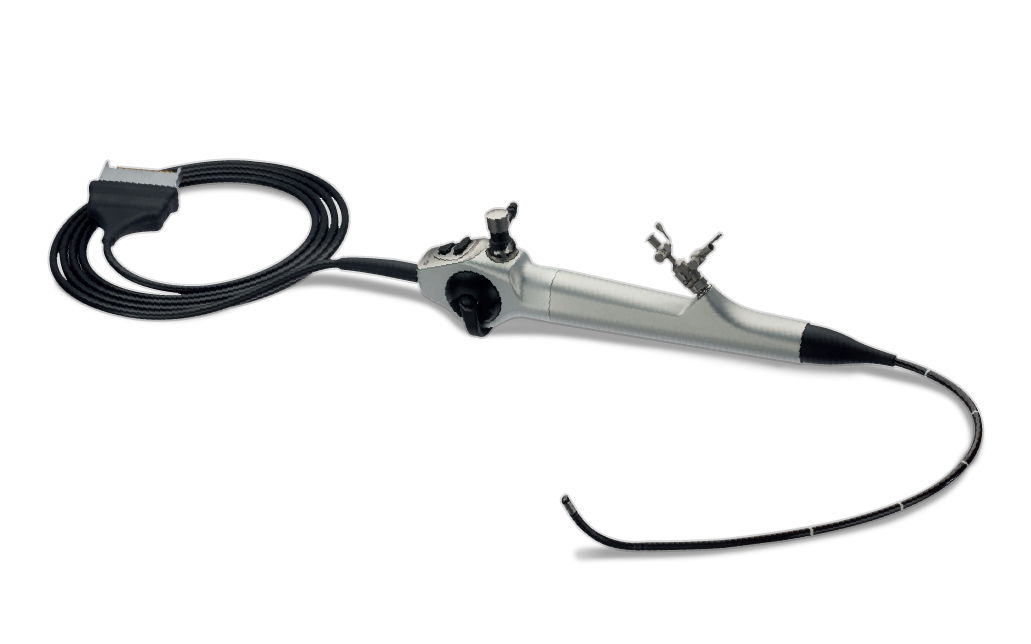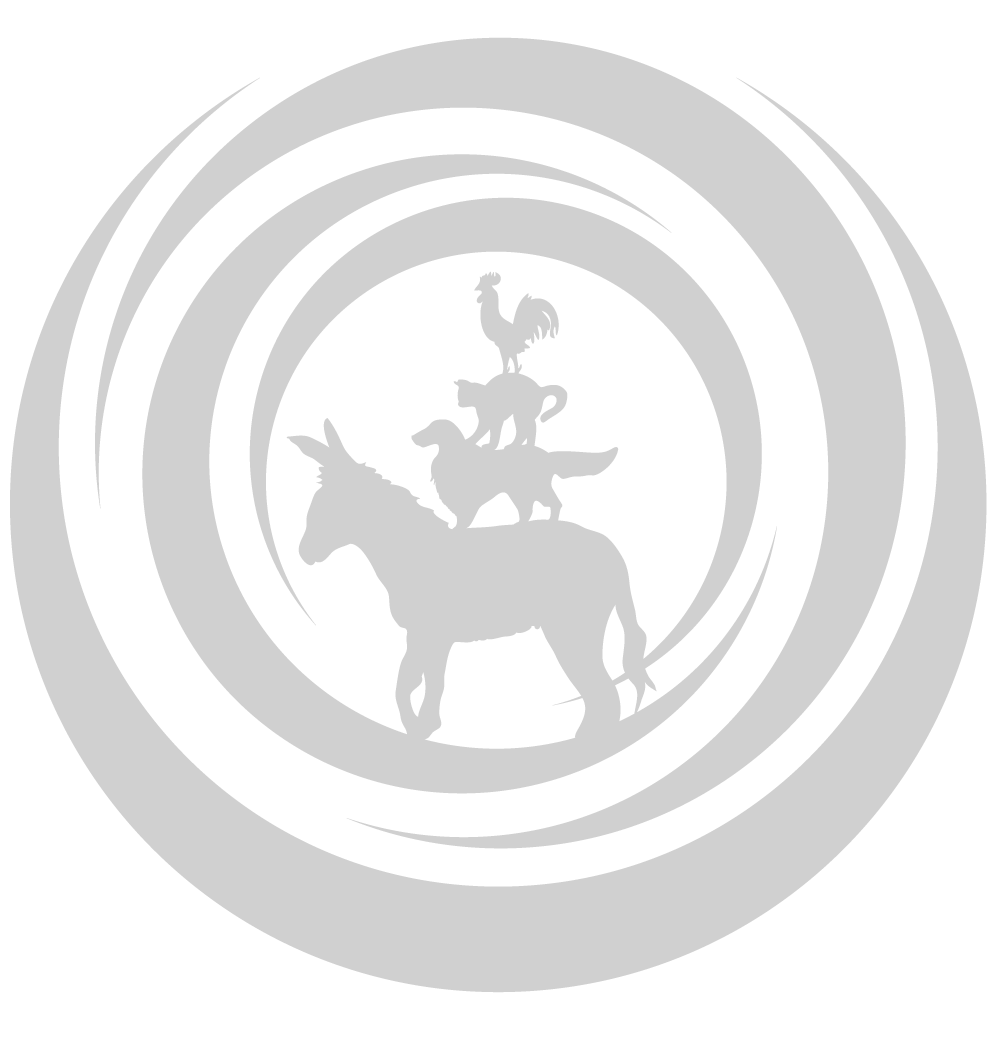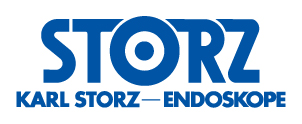DIAGNOSTIC ENDOSCOPY –
AN IMMERSIVE GUIDE
INTEGRATED LIVE COURSE
Spring 2024 Course is sold out.
Fall 2024: September 29 – October 2, 2024 (Onsite labs)
Oquendo Center | Las Vegas
Online content accessible on or after May 1st, 2024 and must be completed
no later than September 15th, 2024 to attend the in-person laboratory training.
Online content will be available for two months following the end of the
in-person laboratory training so you can refer back to the material.
INTEGRATED LIVE COURSE
If you would like to be added to the waitlist for the next course please click on the button below.

Integrated LIVE Course Details
The Integrated Live Course combines in-depth online training with intensive hands-on training to facilitate rapid development of high endoscopic proficiency. Training covers flexible and rigid scope anatomy, handling and cleaning; laser physics, handling and safety; intracorporeal laser lithotripsy; cystoscopy, rhinoscopy, bronchoscopy, upper and lower gastrointestinal endoscopy, laparoscopy and associated advanced procedures. Information covered includes equipment required, case selection and anesthetic considerations, procedural techniques, tips and tricks, and complications.
Didactic material is administered online (20 CE hours) prior to the start of laboratories. As shown below, onsite training maximizes ‘scope time’, with lectures limited to group debriefing sessions. A mixture of dry, cadaveric, and live animal laboratories is used to facilitate mastery of presented material, with the expectation that participants will be ready to ‘Scope On!’ upon course completion. For more information on online course content, click here. See below for details on laboratory activities.
FACULTY:
Dr. Jacqueline Whittemore, DVM, PhD, DACVIM
Lead Instructor
Dr. Shelly Olin, DVM, DACVIM
Dr. Claudia Kirk, DVM, PhD, DACVIM
COURSE FACILITATOR:
Tammy Moyers, LVT
PARTICIPANT RESPONSIBILITIES
- Come excited and prepared to learn. This includes bringing your syllabus and appendices so you can refer to useful materials and take notes during breaks.
- Stay hydrated and nourished – you can’t learn if your brain has no fuel!
- Help each other in a supportive and respectful manner (this includes speaking up if one person is monopolizing the scope).
- Learn a lot – and have fun while doing it!
ONSITE LABORATORIES*
*Lab times may vary slightly between offerings
LAB DAY | Pre-lab Briefing & Meal Start Time* | Lab Start Time | Lab # | Hours** | Topic |
1 | 8:30 | 9:00 | 1 | 3 | Flexible and Rigid Scope Handling & Stereotactics |
12:45 | 13:15 | 2 | 3 | Flexible and Rigid Scope Cleaning; Nerve Blocks, Knot Tying, Nasal Infusion, Handling & Stereotactics (cont.) | |
2 | 8:00 | 8:30 | 3 | 4 | Rhinoscopy, Antifungal Infusion Techniques, Sinotomy Tubes; Laser Handling & Safety |
12:30 | 13:00 | 4 | 4 | Cystoscopy (Cadavers) | |
3 | 8:00 | 8:30 | 5 | 4 | Cystoscopy (Live Animal) & CAC/PCCL Demo |
12:30 | 13:00 | 6 | 4 | Bronchoscopy and BAL | |
4 | 8:00 | 8:30 | 7 | 4 | Gastrointestinal Endoscopy, Biopsies & Foreign Body Retrieval |
12:30 | 13:00 | 3 + 1 | Colonoscopy & PEG Tube Placement |
LAB DAY | Pre-lab Briefing & Meal Start Time* | Lab Start Time | Lab # | Hours** | Topic |
1 | 8:30 | 9:00 | 1 | 3 | Flexible and Rigid Scope Handling & Stereotactics |
12:45 | 13:15 | 2 | 3 | Flexible and Rigid Scope Cleaning; Nerve Blocks, Knot Tying, Nasal Infusion, Handling & Stereotactics (cont.) | |
2 | 8:00 | 8:30 | 3 | 4 | Rhinoscopy, Antifungal Infusion Techniques, Sinotomy Tubes; Laser Handling & Safety |
12:30 | 13:00 | 4 | 4 | Cystoscopy (Cadavers) | |
3 | 8:00 | 8:30 | 5 | 4 | Cystoscopy (Live Animal) & CAC/PCCL Demo |
12:30 | 13:00 | 6 | 4 | Bronchoscopy and BAL | |
4 | 8:00 | 8:30 | 7 | 4 | Gastrointestinal Endoscopy, Biopsies & Foreign Body Retrieval |
12:30 | 13:00 | 3 + 1 | Colonoscopy & PEG Tube Placement | ||
5 | 8:00 | 8:30 | 8 | 4 | Laparoscopy |
12:30 | 13:00 | 8 | 3 |
|
LAB DAY |
Pre-lab Briefing
& Meal Start Time* |
Lab
Start Time |
Lab # |
Hours**
|
|
1 |
8:30 |
9:00 |
1 |
3 |
Topic |
||||
Flexible and Rigid Scope Handling & Stereotactics |
||||
12:45 |
13:15 |
2 |
3 |
|
Topic |
||||
Flexible and Rigid Scope Cleaning; Nerve Blocks, Knot Tying, Nasal Infusion, Handling & Stereotactics (cont.) |
||||
|
LAB DAY |
Pre-lab Briefing
& Meal Start Time* |
Lab
Start Time |
Lab # |
Hours**
|
|
2 |
8:00 |
8:30 |
3 |
4 |
Topic |
||||
Rhinoscopy, Antifungal Infusion Techniques, Sinotomy Tubes; Laser
Handling & Safety |
||||
12:30 |
13:00 |
4 |
4 |
|
Topic |
||||
Cystoscopy (Cadavers) |
||||
LAB DAY | Pre-lab Briefing & Meal Start Time* | Lab Start Time | Lab # | Hours** |
3 | 8:00 | 8:30 | 5 | 4 |
Topic | ||||
Cystoscopy (Live Animal) & CAC/PCCL Demo | ||||
12:30 | 13:00 | 6 | 4 | |
Topic | ||||
Bronchoscopy and BAL | ||||
|
LAB DAY |
Pre-lab Briefing
& Meal Start Time* |
Lab
Start Time |
Lab # |
Hours**
|
|
4 |
8:00 |
8:30 |
7 |
4 |
Topic |
||||
Gastrointestinal Endoscopy, Biopsies & Foreign Body Retrieval |
||||
12:30 |
13:00 |
3 + 1 |
||
Topic |
||||
Colonoscopy & PEG Tube Placement |
||||
|
LAB DAY |
Pre-lab Briefing
& Meal Start Time* |
Lab
Start Time |
Lab # |
Hours**
|
5 |
8:00 |
8:30 |
8 |
4 |
12:00 |
13:00 |
8 |
3 |
|
Topic |
||||
Laparoscopy |
||||
Laboratory 1: Scope Handling and Stereotactics
Participants will:
- Learn the different components of flexible and rigid endoscopy towers
- Connect and power up a tower, fiberoptic scope, videoscope, and rigid telescope
- Properly hold and manipulate rigid and flexible scopes (and learn what happens when proper technique is not used)
- Navigate simulated airway and intestinal tracts with a flexible scope, use flexible instruments for foreign body retrieval, perform BAL
- Use/handle laparoscopic instruments for performance of rigid endoscopic skills
- Technicians will learn flexible scope cleaning and troubleshooting
LUNCH
Laboratory 2: Scope Cleaning (Plus Handling & Stereotactics)
Participants will:
- Identify and correctly name rigid endoscopy instruments
- Practice flexible biopsy unloading and orientation
- Disassemble, clean, and reassemble flexible and rigid scopes; learn troubleshooting techniques for malfunctioning or clogged scopes
- Perform nerve blocks and antifungal catheter placement
- Review examples of broken instruments, disposable equipment and equipment hacks, and knot-tying skills
- Learn to use resectoscope and J-tip at bipolar station
- Continue training on skills from the morning session
Laboratory 3: Laser Safety and Hands-on Training, Cadaver Rhinoscopy
Participants will:
- Learn to safely operate a laser as a team
- Learn appropriate technique for tissue resection and urolith disruption using a laser
- Practice use of the laser for urolith disruption in a trainer
- Connect and power up a tower for rhinoscopy
- Perform retroflexion behind the soft palate in dog and cat cadavers
- Perform rigid rhinoscopic evaluation of the nasal cavity and take biopsies, otoscopy ± 110º retrograde evaluation
- Document rhinoscopy findings (Appendix)
- Power down towers and clean endoscopic equipment (by table)
LUNCH
Laboratory 4: Laser Safety and Hands-on Training, Cadaver Cystoscopy
Participants will:
- Continue laser training by group (if needed)
- Connect and power up a tower for cystoscopy
- Perform cystoscopy and vaginoscopy in female dog and cat
- Perform transurethral cystoscopy in a male dog
- ± Perform stone retrieval, laser lithotripsy and tissue transection in cadavers
- Document vaginoscopic and cystoscopic findings (Appendix)
- Power down towers and clean endoscopic equipment (by table)
Laboratory 5: Cystoscopy
Participants will:
- Connect and power up a tower for cystoscopy
- Perform and observe cystoscopy in a female dog
- Document vaginoscopic and cystoscopic findings (Appendix)
- Power down towers and clean endoscopic equipment (by table)
- Observe or perform CAC after live dog cystoscopy is completed
LUNCH
Laboratory 6: Bronchoscopy
Participants will:
- Perform bronchoscopy in a systematic manner using bronchoscopic maps (Appendix)
- Perform and observe bronchoalveolar lavage
- Document bronchoscopic findings (Appendix)
Instructors will cycle through tables to facilitate:
– Bronchoscopic exam without an ET tube by 1 – 2 participants
– Laryngeal examination by 1 – 2 participants prior to reintubation and continuation of bronchoscopy - Power down towers and clean endoscopic equipment (by table)
Laboratory 7: Gastrointestinal Endoscopy
Participants will:
- Perform upper gastrointestinal viewing (2 hours)
- Perform removal of sham foreign bodies and gastrointestinal biopsies (2 hours)
- Perform colonoscopy (2 hours)
- Document endoscopic findings (Appendix)
LUNCH
After lunch, participants will:
- Perform colonoscopy (2 hours)
- Perform PEG tube placement in dog cadavers
- Power down tower and clean endoscopic equipment (by table)
Laboratory 1: Scope Handling and Stereotactics
Participants will:
- Learn the different components of flexible and rigid endoscopy towers
- Connect and power up a tower, fiberoptic scope, videoscope, and rigid telescope
- Properly hold and manipulate rigid and flexible scopes (and learn what happens when proper technique is not used)
- Navigate simulated airway and intestinal tracts with a flexible scope, use flexible instruments for foreign body retrieval, perform BAL
- Use/handle laparoscopic instruments for performance of rigid endoscopic skills
- Technicians will learn flexible scope cleaning and troubleshooting
LUNCH
Laboratory 2: Scope Cleaning (Plus Handling & Stereotactics)
Participants will:
- Identify and correctly name rigid endoscopy instruments
- Practice flexible biopsy unloading and orientation
- Disassemble, clean, and reassemble flexible and rigid scopes; learn troubleshooting techniques for malfunctioning or clogged scopes
- Perform nerve blocks and antifungal catheter placement
- Review examples of broken instruments, disposable equipment and equipment hacks, and knot-tying skills
- Learn to use resectoscope and J-tip at bipolar station
- Continue training on skills from the morning session
Laboratory 3: Laser Safety and Hands-on Training, Cadaver Rhinoscopy
Participants will:
- Learn to safely operate a laser as a team
- Learn appropriate technique for tissue resection and urolith disruption using a laser
- Practice use of the laser for urolith disruption in a trainer
- Connect and power up a tower for rhinoscopy
- Perform retroflexion behind the soft palate in dog and cat cadavers
- Perform rigid rhinoscopic evaluation of the nasal cavity and take biopsies, otoscopy ± 110º retrograde evaluation
- Document rhinoscopy findings (Appendix)
- Power down towers and clean endoscopic equipment (by table)
LUNCH
Laboratory 4: Laser Safety and Hands-on Training, Cadaver Cystoscopy
Participants will:
- Continue laser training by group (if needed)
- Connect and power up a tower for cystoscopy
- Perform cystoscopy and vaginoscopy in female dog and cat
- Perform transurethral cystoscopy in a male dog
- ± Perform stone retrieval, laser lithotripsy and tissue transection in cadavers
- Document vaginoscopic and cystoscopic findings (Appendix)
- Power down towers and clean endoscopic equipment (by table)
Laboratory 5: Cystoscopy
Participants will:
- Connect and power up a tower for cystoscopy
- Perform and observe cystoscopy in a female dog
- Document vaginoscopic and cystoscopic findings (Appendix)
- Power down towers and clean endoscopic equipment (by table)
- Observe or perform CAC after live dog cystoscopy is completed
LUNCH
Laboratory 6: Bronchoscopy
Participants will:
- Perform bronchoscopy in a systematic manner using bronchoscopic maps (Appendix)
- Perform and observe bronchoalveolar lavage
- Document bronchoscopic findings (Appendix)
Instructors will cycle through tables to facilitate:
– Bronchoscopic exam without an ET tube by 1 – 2 participants
– Laryngeal examination by 1 – 2 participants prior to reintubation and continuation of bronchoscopy - Power down towers and clean endoscopic equipment (by table)
Laboratory 7: Gastrointestinal Endoscopy
Participants will:
- Perform upper gastrointestinal viewing (2 hours)
- Perform removal of sham foreign bodies and gastrointestinal biopsies (2 hours)
- Perform colonoscopy (2 hours)
- Document endoscopic findings (Appendix)
LUNCH
After lunch, participants will:
- Perform colonoscopy (2 hours)
- Perform PEG tube placement in dog cadavers
- Power down tower and clean endoscopic equipment (by table)
Laboratory 8: Laparoscopy
Participants will work in groups of 4 to perform or observe:
- Draping in of a patient for laparoscopic approach (go wide)
- Veress needle placement, insufflation, and sharp cannula introduction in lateral recumbency using high pressure pneumoperitoneum
- Camera-monitored sharp or blunt cannula placement in lateral, dorsal or both recumbencies
- Laparoscopic explore, examining abdominal organs in a systematic manner, in both lateral and dorsal recumbency
- Biopsy of liver, pancreas, kidney, +/- intestine, lymph node, spleen
- Laparoscopic-assisted cholecystocentesis
- Jejunostomy tube placement if desired
LUNCH
After lunch, participants will:
- Perform any additional laparoscopic procedures desired on cadavers prior to equipment breakdown and cleaning
- Power down tower and clean endoscopic equipment (by table)
PRICING:
Includes online training, written instruction materials, laboratories and meals during the course (breakfast & lunch).
Credits: 56 CE hours
Available Languages: English (US)
*Flights, hotel, ground transportation, parking and dinner meals are NOT included.
Please book your own travel and accommodation.
PRICING:
Includes online training, written instruction materials, laboratories and meals during the course (breakfast & lunch).
Credits: 64 CE hours
Available Languages: English (US)
*Flights, hotel, ground transportation, parking and dinner meals are NOT included.
Please book your own travel and accommodation.
Spring 2023 Course sold out, if you would like to be added to the waitlist for the next course please click on the button below.
FALL 2024:
September 29 – October 2, 2024 (Credits: 56 CE hours)
LOCATION:
Oquendo Center, 2425 East Oquendo Road
Las Vegas, NV 89120
FACULTY:
DR. JACQUELINE WHITTEMORE
DVM, PhD, DACVIM
Lead Instructor
An ONLINE ONLY COURSE is also available for those seeking at-home training.

CANCELLATION POLICY
Inadequate Registrations:
If the minimum number of registrants is not met, the course will be canceled and all registration fees will be refunded.
COVID-19:
Should laboratory training need to be canceled prior to launch of online training due to COVID-19 restrictions, all registration fees will be refunded. If laboratories require rescheduling after online training has started, participants will have the option to receive a prorated refund to cover online training alone OR to be moved to the new dates for the course. If a participant cannot travel due to travel restrictions imposed at their site of origin, they will be eligible for a credit toward participation in future laboratory training.
Cancellation for Other Reasons:
If a participant is unable to attend for other reasons, handling of registration fees will be addressed on a case-by-case basis.
